
Bideford was first formed in the late 1890s and was then called Bideford Town.
Since the first decade of the twentieth century, the club has predominantly played at the Sports Ground, Kingsley Road in Bideford and until entering hibernation for the duration of World War Two, it was a highly successful club, albeit one that played the majority of its football in North Devon.
Following its reformation in the 1947/48 season, the club was re-born as Bideford Association Football Club and entered the Exeter & East Devon League with only two of the pre-war team surviving - Gerald Brommell and Fred Shute.
For the start of the 1948/49 season Fred Pincott was appointed manager and the club had a house in Chanters Avenue for him to live in but team selection was still in the hands of the committee.
Bideford were runners-up in the 1948/49 season and applied to join then the Western League Division Two. This was declined and instead they were made to join Division Three.
Bideford won the division without losing a game and two seasons later they won the Second Division and promotion to Division One.
In 1964/65 Bideford reached the First Round of the FA Cup for the first time in its history and drew away at Colchester United 3-3 and lost home in the replay 2-1, at which BBC cameras were present.
Bideford won the Western League three times before joining the Southern League in 1972.
The club spent three seasons in the Southern Division One South before the extra expense involved and increased travelling took its toll, forcing them to drop down back to the Western League in 1975.
During the first period in the Southern League, the club set an all-time FA Cup record when in 1974/75 they played THIRTEEN FA Cup games in a single season – as a result of playing numerous replays in qualifying rounds, including needing five games to beat Falmouth Town and four more to beat Trowbridge Town in the next round.
With the subsequent abandonment of second and further replays, this record is unlikely to ever be beaten again.
Bideford were finally knocked out 2-0 by Bristol Rovers in the First Round.
In 1977/78 Bideford again reached the First Round, travelling to Portsmouth where they lost 3-1. Finally, they achieved the feat again in 1981/82 being knocked out by Barking 2-1.
Two more Western League titles followed in the early 1980s before a financial crisis hit the club.
A re-formation took place in 1987 leading to the current set up, a company limited by guarantee under the revised company name Bideford AFC (1987) Ltd.
Under the chairmanship of Jim McElwee, and his successor Paul Mitchell, the club won four more Western League titles and also reached the FA Vase semi-finals where they lost to Winchester City.
Despite winning the Western League four times between 2000 to 2006, the club elected not to apply for promotion to the Southern League due to the amount of travelling and expense that would be involved in playing teams which, almost without exception, would be over 100 miles away.
However. after winning the Western League again for the tenth time in the 2009/10 season and winning the Devon St Luke’s Bowl where they beat Exeter City 2–1 in the final, Bideford AFC accepted promotion to the Southern League in May 2010 joining Division One South & West.
In only their second season, Bideford were crowned champions by an impressive eleven-point margin and gained promotion for the first time in the club's history to the Southern Premier Division.
The 2013/14 season saw Bideford finish in their highest ever league position of eighth in the Premier Division but after four years at that level they were relegated for the first time in their history back to Division One in 2015/16.
Since then, they have finished tenth, eighth and ninth respectively before the pandemic struck.
Sean Joyce made 200 League appearances for Cambridge United, Doncaster Rovers, Exeter City; Torquay United and then non-League football with Elmore and Taunton Town but was coming to an end of a playing career that had seen him start at Doncaster under the likes of Dave Mackay and Billy Bremner, before moving to Torquay United, where he made more than 150 appearances for the Gulls, including a couple of appearances at Wembley.
Download:
Sean Joyce
He signed for Bideford in December 1996, playing 39 times and scoring 2 goals before a knee injury put an end to his playing career.
When joint managers Dudley Barry and Brian Shannon resigned in 1998, Bideford were rock bottom of the Western League Premier Division, and it was then that chairman Jimmy McElwee turned to Joyce.
Bideford were at that time a struggling Western League Premier Division side and, since then, he has taken the club from success to success during his many years as manager, gaining promotion to the Southern League South & West and then up to the Southern League Premier before going back down to the South & West section in 2016.
Tony Dennis served his apprenticeship with Plymouth Argyle prior to a career which drifted out of and then back into the Football League.
The Eton-born winger made his Argyle debut as a 17-year-old substitute in a home defeat to Lincoln City in September 1982, scoring his debut goal three days later in a League Cup game at home to Chester City.
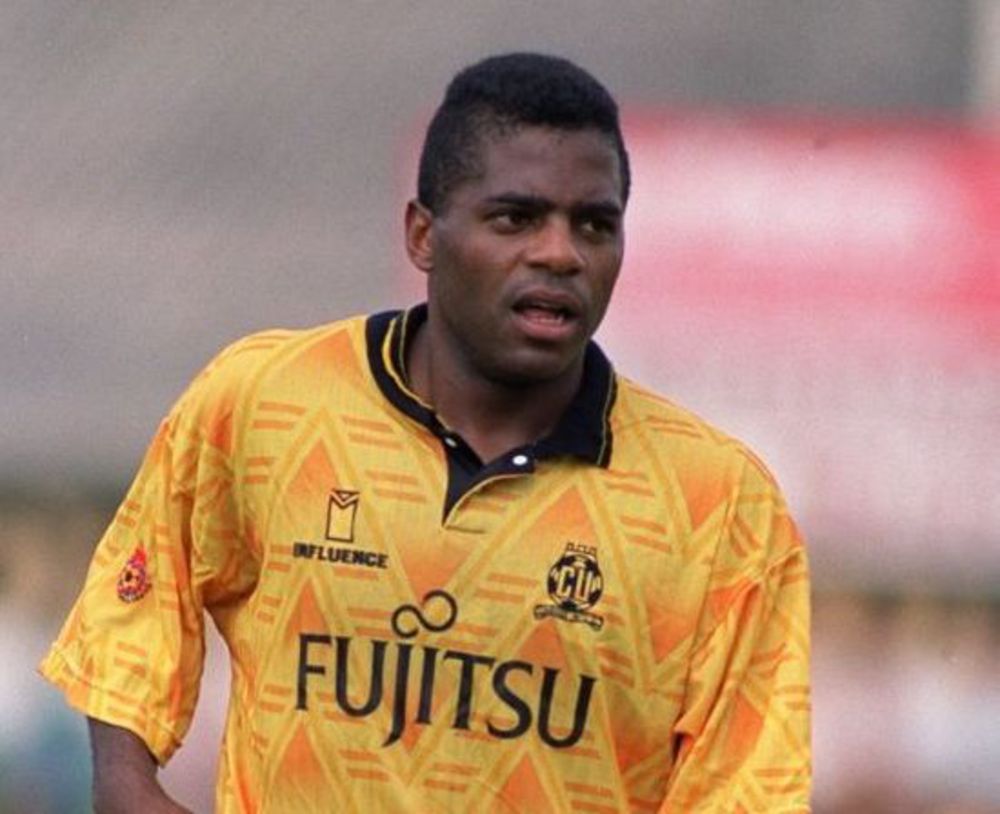
Tony Dennis
He went on to make 6 appearances in total in the 1982/83 season and 3 more the following year before moving to Exeter City.
Just 4 appearances followed before he drifted into non-League football with Bideford in 1984.
He had two solid seasons with the Robins, helping the team to finish second and third before moving down the M5 to Western League rivals Taunton Town in 1986.
He then moved back to near to home-town Eton by signing for Isthmian League Premier Division side Slough Town.
Consistent performances with the Rebels, for whom he made 76 appearances and scored 12 goals, brought him to the attention of Cambridge United, for whom he signed in 1988 with a second chance of a League career.
He went on to play 111 times for the U`s, scoring 10 times across five years at The Abbey Stadium and helped them to the Fourth Division play-offs and Third Division in successive seasons in 1990 and 1991.
He had a short spell with Chesterfield and then two seasons at Colchester United.
A last move to his final League club then followed when he moved to Lincoln City for the 1996/97 season, playing 28 times, before returning to non-League football with Northern Premier League outfit Gainsborough Trinity and then finally with Southern Premier Division Ilkeston Town before hanging up his boots.
Eric Bryant`s claim to fame is that he scored the winning goal for Southern League Yeovil Town in their famous FA Cup victory against Sunderland in 1949.
Centre-forward Bryant, a Brummie, signed for the Glovers from Mansfield Town in 1948.
He had played 35 times for the Stags who had picked him up from Army football just after the Second World War.
He averaged over a goal every two games in his first season but had little opportunity the following term after some new signings arrived and he was released at the end of April 1948.
Bryant moved down to the West Country and signed for Alec Stock`s Yeovil and took a job as a corn chandler`s assistant.
During that infamous FA Cup run of 1948/49, Yeovil saw off Lovells Athletic, Romford, Weymouth and then Second Division Bury in the Third Round before being drawn against the then-powerful Sunderland at The Huish.
And it was Bryant`s 104th minute goal in extra-time (no replays then) that saw the Glovers pull off their most famous cup upset in front of over 17,000 fans.
The cup holders Manchester United brought them firmly back to earth by beating them 8-0 at Old Trafford – United eventually losing in the semi-final to Wolverhampton Wanderers.
Bryant`s goalscoring form led to a move to Plymouth Argyle for a fee of £3,000, which was probably a record for a non-League transfer at the time, but in two seasons with Argyle he was unable to reproduce his prolific scoring record and moved on to Leyton Orient, where he made just a dozen appearances in his only season at the club.
He spent a season back in the Southern League with Chelmsford City and then enjoyed a particularly prolific season or so in the Western League with Dorchester Town, for whom he scored 48 goals in 47 before signing for another Western League club, Bideford, in 1955.
He finished top scorer with the Robins and then finished off his career with spells at Frome Town and Poole Town.
Keith Bowker started his career with Birmingham City as an apprentice and featured in the team that reached the final of the FA Youth Cup.
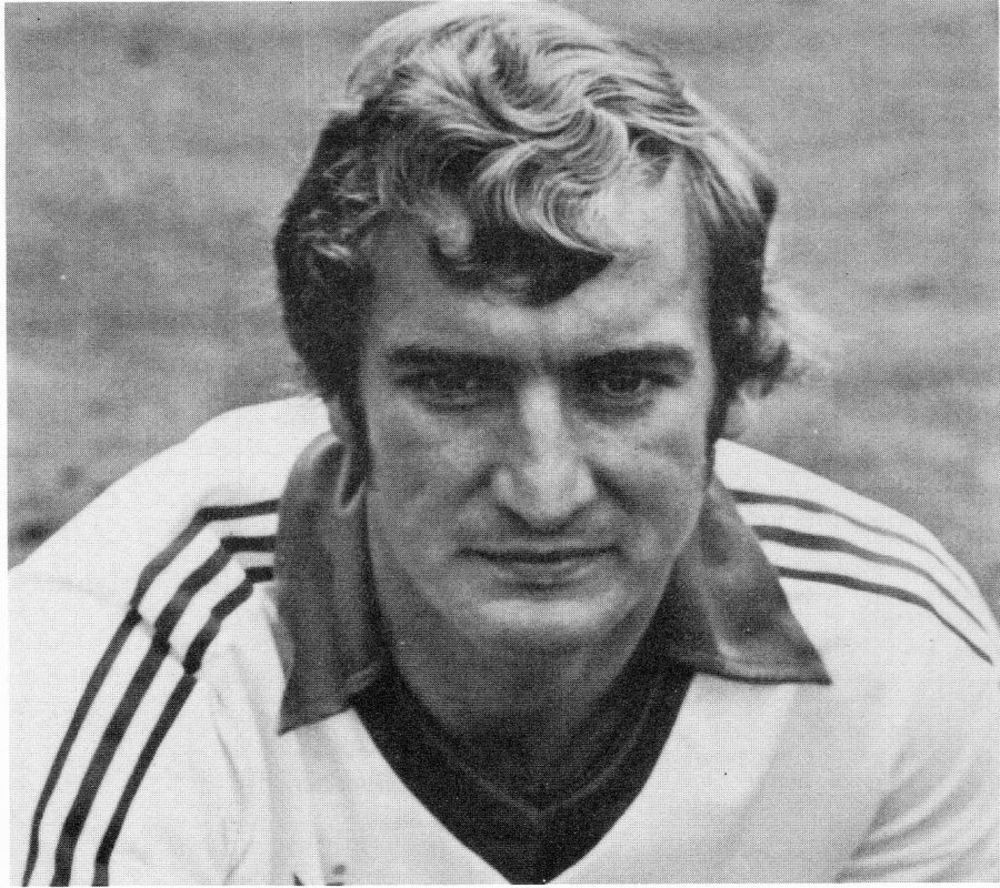
Keith Bowker
He became a full professional with Birmingham, then a First Division side, in August 1968.
Reaching first team level, Bowker made 21 appearances, scoring 5 goals.
However, Exeter City decided the team needed a bit of a shake up and in December 1973 they paid a fee for Bowker and he made the Grecians debut in front of just 693 spectators at Workington.
Bowker stayed until May 1976, during which time he had netted 38 goals in 110 appearances.
He then signed for Cambridge United for a fee of £10,000, but his stay there was a short one and seven months later he had moved to Northampton Town.
But after just 4 appearances for the Cobblers, Bowker was on his way back to Exeter in August 1977, and this time he scored 28 goals in 102 outings for the Grecians.
His final Football League club was to be Torquay United whom he joined in August 1980 and he featured in 53 matches, scoring 9 goals, being eventually released to link up with Bideford in the Western League in the summer of 1982 where he was appointed as player-manager.
He stayed with the Robins until 1986 when he then took charge at Taunton Town until 1993 and worked for the Royal Mail in Exeter before retiring.
Striker Ellis Laight was a trainee at Torquay United and signed professionally for them in July 1995.
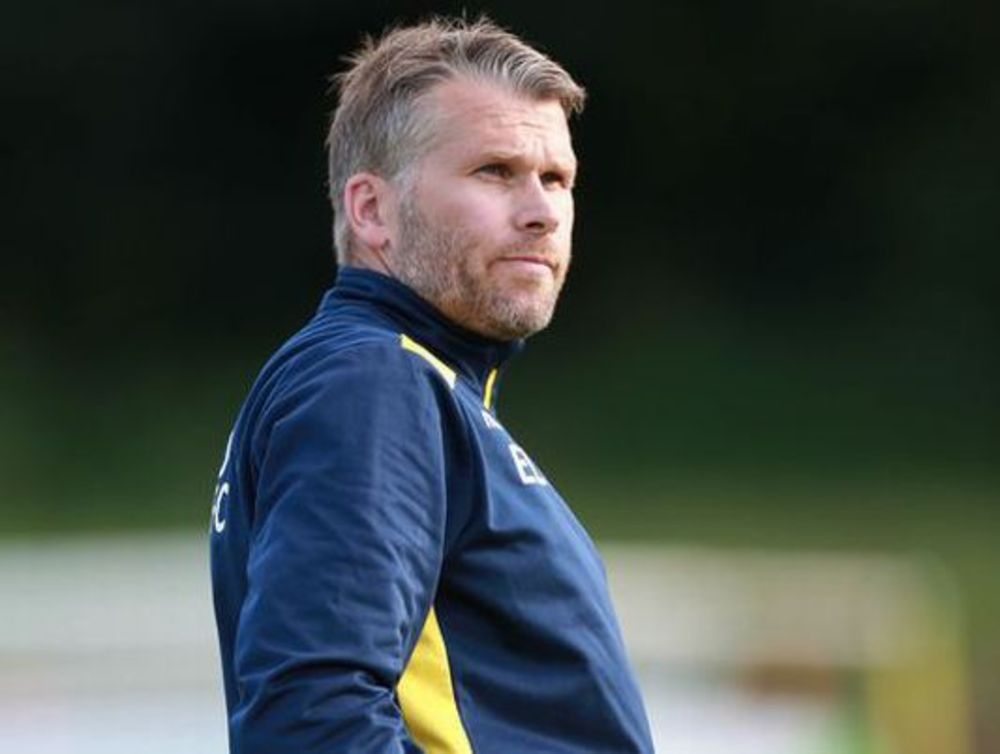
Ellis Laight
However, after limited chances in the first team, he joined Bideford at the start of the 1996/97 season.
His goalscoring talents earned him a trial at Rushden & Diamonds but he failed to impress and returned to Bideford before joining Taunton Town in July 2000 and was instrumental in their FA Vase Final victory in May 2001.
He re-joined Bideford in July 2003 and continued to be a prolific goalscorer and becoming their team captain.
He went on to play 409 games for the Robins, scoring around 160 goals before leaving the club in July 2011 to join South West Peninsula League club Bovey Tracey.
After a single season away from the Sports Ground, during which they gained promotion to the Southern Premier Division, Laight rejoined Bideford again in August 2012, for a third spell at the club.
He then went on to play for Buckland Athletic, becoming their manager before being dismissed at the end of 2017.
From a well-known family based in Budleigh Salterton, Alan Hooker joined Exeter City as an apprentice, becoming a full professional in July 1974.
He made his league debut for the Grecians in a 2-0 defeat at Brentford in December 1974 and went on to complete 9 outings for the City that season.
He started the 1975/76 season off filling the left-back slot and added a further 28 games to his tally.
He also featured in the first half of the 1976/77 promotion-winning season, making a further 13 appearances.
After leaving the Grecians in the summer of 1977, Hooker signed for Bideford.
He helped the Robins finished as runners-up in the Western League on two occasions.
He was to later play a major part in the success of Exmouth Town in the 1980s, captaining the side on several occasions as they won promotion from the Western League Division One and then Premier Division titles in 1983/84 and 1985/86.
He also played for Weston-super-Mare in 1992/93 in the Southern Midland Division.
Working for Clark’s Shoes in Exmouth, he later transferred to their factory in Street, Somerset and played for Western Leaguers Bridgwater Town, where he became joint manager of the team in 1994 - a position he held until the 1999/00 season.
He then became player-manager of Street FC in the Western League and finally Somerset Premier League side Glastonbury.
Dudley Barry will perhaps be best remembered for his 11-year spell with Weymouth in the Southern League.
Coming in the season after the Terras had won the 1964/65 Premier Division title under Frank O`Farrell, his replacement, player-manager Stan Charlton signed Barry and he helped the Dorset outfit to retain the title in 1965/66 and finish third the following campaign.
He went on to make 415 appearances for the Terras, scoring 52 goals.
Midfielder (half-back then) Barry he joined Weymouth in June 1965, from Plymouth Argyle – whom he joined in 1962.
In 1968 he joined the club`s staff of the development office as deputy to Alex Jackson.
On his retirement from full-time playing, in June 1973, he joined the coaching staff of Weymouth.
In 1975 he moved to Kuwait to work as youth team coach at National Sporting Club – where former Terras` boss Graham Williams was manager.
Ahead of the 1977/78 season he became manager at Bideford, staying for three seasons before retiring from football.
In his first season in charge of the Robins, he helped them to reach the First Round of the FA Cup after a run which saw them defeat St Blazey, Newquay, Tiverton Town after a replay and then Southern League Division One North outfit Banbury United.
They were drawn away to Portsmouth in the First Round and over 1,000 supporters followed the team to the famous Fratton Park where the run ended in a 3-1 defeat.
Skip a few eras and Matt Hockley was another hugely popular player with Bideford fans.
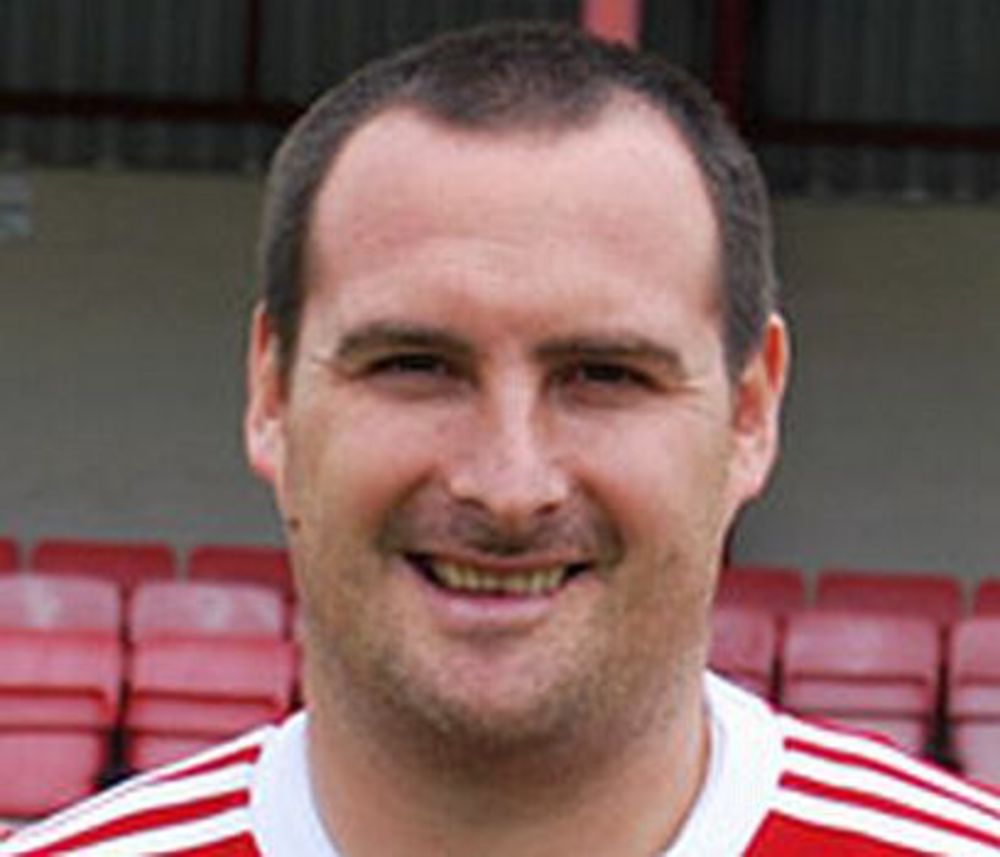
Matt Hockley
He started his career with his local side, Torquay United, where he was signed as a professional in June 2000 and went on to make over 250 appearances for the Gulls and score 10 goals.
His final game for a now-Conference side Torquay was as an unused substitute in the FA Trophy Final defeat at Wembley in May 2008 – he was released three days later.
He joined Conference South side Truro City in June 2008 but stayed only one season at Treyew Road before signing for Bideford AFC in the summer of 2009.
He took a while to stamp his authority on the team before succeeding Ian Down as captain.
In his first season, he was part of the squad that won the Western League and gained promotion to the Southern League and he captained the team who won the Southern Division One South & West title in 2011/12.
In March 2014, he announced that he was leaving the club as he was moving away from Devon to start a new job in Norwich and in June 2014 he was revealed as a new signing for Isthmian League North side Dereham Town.
However, in May 2015, Hockley returned to Devon and re-signed for Bideford, this time as player/assistant-manager, finally hanging up his boots in 2016.
Did you know that Bideford once transferred a player to Italian giants Juventus!
Well, actually it was the `old` Bideford Town club who saw Billy Aitken leave to join Juventus as manager in 1928.
Peterhead-born forward Aitken started his career with Kirkintilloch and then Queens Park before signing for Glasgow Rangers in 1918.
After 21 appearances for Rangers, scoring 2 goals, he moved to Port Vale and then Newcastle United, for whom he scored 10 goals in 104 games and became a favourite with the St James`s Park crowd.
Moves to Preston North End where he played 56 times and scored 11 goals, Lancashire Combination outfit Chorley and then Third Division South side Norwich City followed before he ventured down to the South West to join Bideford.
He travelled to Italy, and impressed Juventus chairman Edoardo Agnelli with his idea of exporting the playing system pioneered by Arsenal manager Herbert Chapman.
However, not everyone was convinced by his new methods, and some Juve players were unwilling to put in the extra work required to make the system work.
He nevertheless led the Old Lady to a third-place finish in 1929/30.
Although he found little success at Stadio di Corso Marsiglia, his methods were built upon by future coaches at the club.
He was unable to take to the field as player, as foreigners were not permitted to play in the Italian leagues and the time, and he eventually ended up playing and coaching football in France for AS Cannes, Stade de Reims and FC Antibes.
At Cannes he was part of the team that reached the Coupe de France final at the Stade Olympique Yves-du-Manoir in April 1932, which they won 1–0 over RC Roubaix. They also finished as runners-up in the Ligue de Football Professionnel in 1932/33.
With Stade Reims, he won the Championnat de France amateur league in 1935.
He returned to Britain during the Second World War and worked as a defence contractor at Vickers-Armstrongs.
He later coached in Belgium with Royale Union Saint-Gilloise and Norway with SK Brann and became a representative of a wine and spirits distributor in Tyne & Wear and passed away in August 1973 at the age of 79.
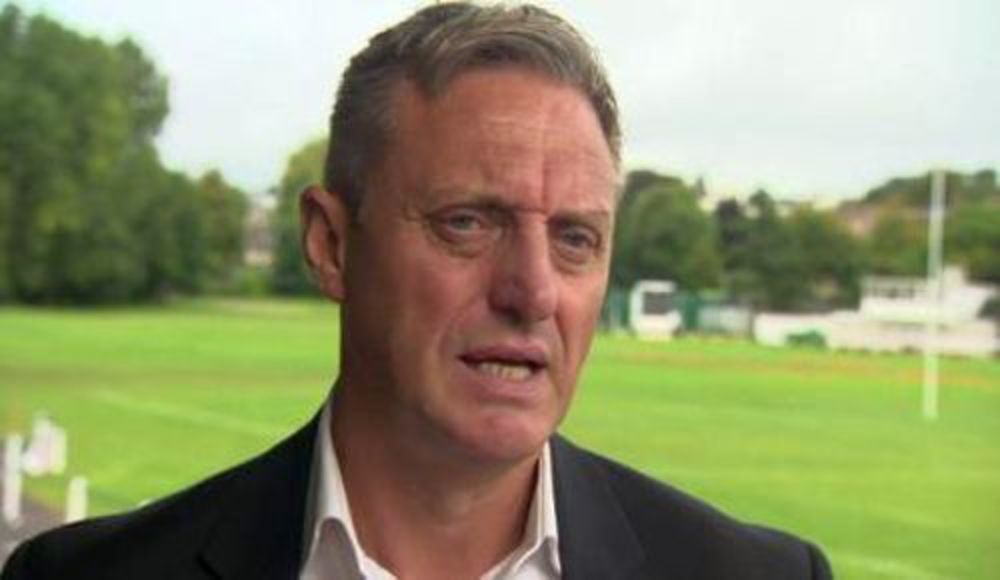
Dean Edwards
As a player, Dean Edwards was a forward who started out at Shrewsbury Town and made 13 appearances for the senior side and scored 2 goals before spending two years in Finland with Kuopion Palloseura and then Vaasan Palloseura.
In 1983 he returned to England and had a successful spell in the Conference with Telford United, where he scored 24 goals in 54 games, before earning a dream move to home-town club Wolverhampton Wanderers in 1985.
He spent two years with Wolves and played 31 times, netting 10 goals, before moving to the West Country for the first time with Exeter City.
He played 54 times for the Grecians with 17 goals and moved down the A380 to Torquay United, then managed by former Spurs legend Cyril Knowles.
Edwards played 116 times and scored 30 goals for the Gulls before returning briefly to Exeter in December 1991.
Short spells with Northampton Town, Maltese side Sliema Wanderers and Hong Kong Rangers followed before embarking on his managerial career.
Edwards managed neighbouring Bideford in the Western League from 1996 to 1998 but left, apparently, due to a lack of commitment from his players.
He was then in the dug-out at Northern Premier League Hednesford Town from 2008 to 2009.
In between, he was also player-boss at both Pelsall Villa and then Willenhall Town at the age of 44.
In the summer of 2015, he was appointed as director of football at Torquay United after leading a takeover consortium of local businesses.
He resigned days after the exit of manager Paul Cox a few months later in September 2015.
In October 2019, Edwards returned to management with Bideford`s Southern Division One South rivals Barnstaple Town where he remains.
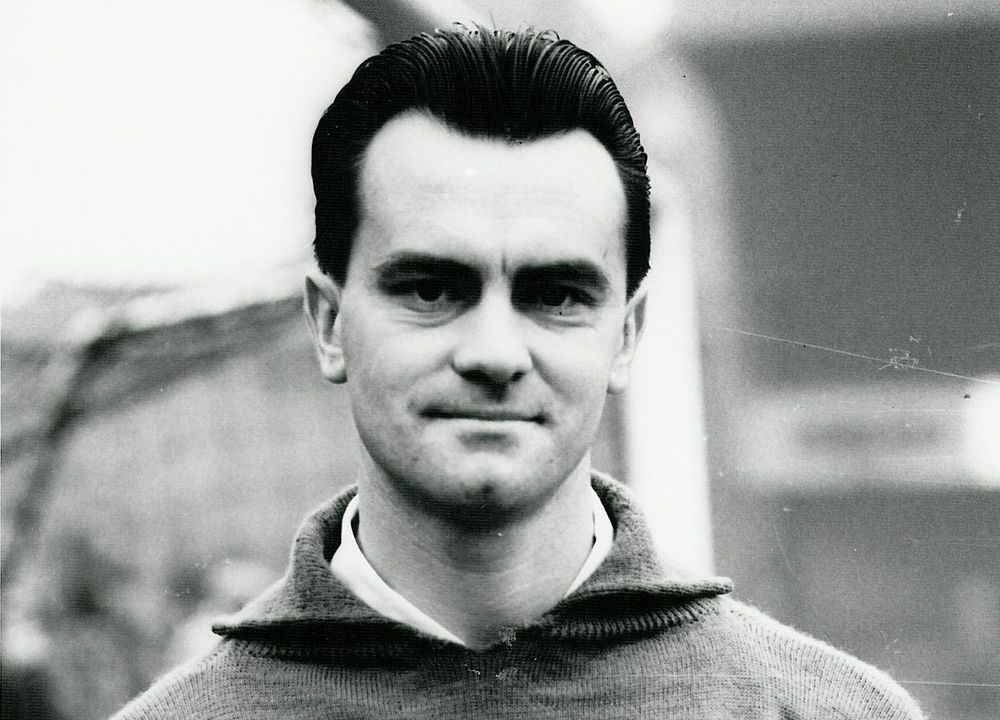
Mervyn Gill
Exeter-born goalkeeper Mervyn Gill spent his early years from 1948 to 1953 playing for Bideford in the Western League.
During his time with the Robins, he helped them gain promotion twice as champions of Division Three in 1949/50 and of Division Two in 1951/52.
In August 1953, Gill joined First Division Portsmouth where he started out as an amateur while he completed his National Service in Thorney Island as a PE instructor with the RAF.
Pompey offered him the chance to return after his discharge but an offer of £14 per week and use of a house in Swaythling persuaded him to chance his arm with Southampton, then in the Third Division South under new manager, Ted Bates and he made his debut in the last game of the 1955/56 season at Walsall.
In his nine months at The Dell, there were a brief periods between occasional appearances for Isthmian League Woking.
In 1956, he signed for Torquay United and had six seasons at Plainmoor, making 174 appearances.
After a short spell in the Southern League with Bath City, he worked for English China Clay Quarries between 1962 and 1990 before retiring to Bridport in Dorset, where he passed away in September 2007, aged 76.
Barnstaple-bornOwen Pickard was a prolific marksman whose career began with Plymouth Argyle.
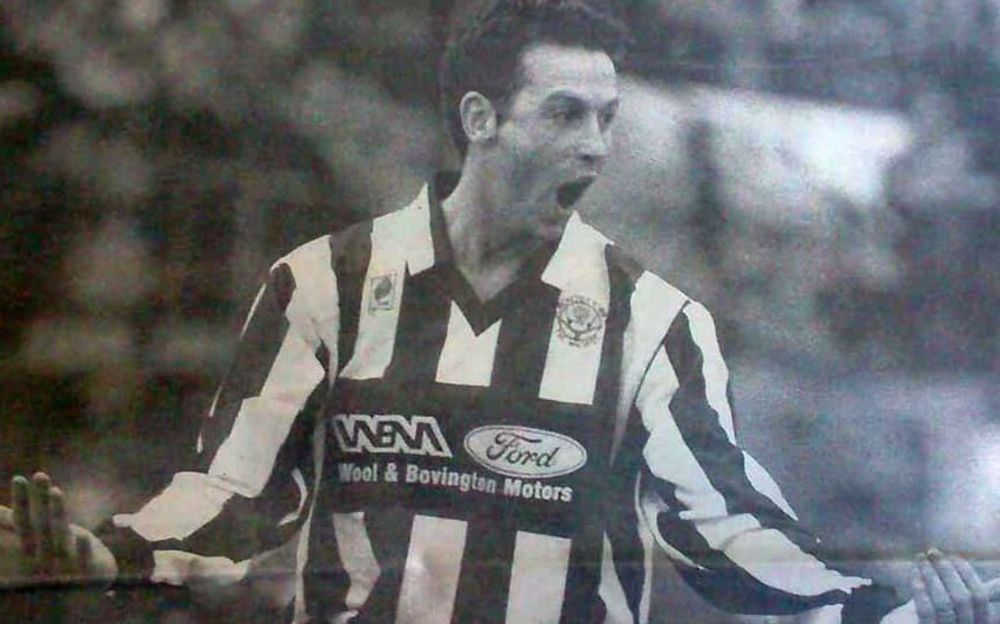
Owen Pickard
He made 16 appearances but scored only once and was released by Peter Shilton in the summer of 1992.
He moved to Hereford United in 1992 and added a further 73 games and 14 goals to his tally before signing for Southern Premier Division side Dorchester Town in September 1994.
He was the second-highest scorer in the league in his first season with the Magpies.
He netted 102 times in only 151 appearances and was part of the side that reached the First Round of the FA Cup against Oxford United in 1995.
He was sold to Yeovil Town in 1997 and after two successful seasons in Somerset, he returned to the Avenue Stadium for two more seasons when he again reached the First Round of the FA Cup with the club, being in the squad that was drawn away to Wigan Athletic in 2000.
He left Dorchester in 2001 for Western League Bideford having totalled 121 goals in 219 games across his two spells.
He had a couple of seasons with the Robins and returned to Barnstaple to run a chiropody practice in the town.
During the 2008/09 season, Pickard took over the managers` seat at Barnstaple Town for his first taste of management and was able to save the club from what looked like certain relegation from the Western League Premier Division at the Christmas period of the season.
He left at the end of the 2011/12 season and later returned as joint manager.
John Wingate, who had played for Exeter City’s colts' team in 1967/68, was appearing for Dawlish Town, when Plymouth Argyle signed him on amateur forms in December 1968.
He played one League game for them against Gillingham, before returning to Dawlish.
Exeter City signed him on a professional deal in February 1969 and it proved to be a good move as he served the club in two separate spells, playing in a number of positions.
His debut was made against Chesterfield at Saltergate in March 1969 and featured regularly in the side after that, with is best season being 1973/74 when he only missed two matches and scored 5 goals.
Scunthorpe United made a bid of £4,000 for him in December 1970, but City said he was not for sale.
However, he was transferred to Bournemouth in July 1974, but despite playing 33 matches for them, scoring 3 goals, he was back at St James’ Park on a free transfer in July 1975.
He remained with the Grecians until the end of the 1975/76 season, then signing for Western League Bideford.
He later owned a fudge-making business.
Formerly on the books at Woking, Dick Forbes was studying at St Luke’s College in Exeter when he signed for Exeter City in April 1978, although he had played for the Grecians’ reserve team prior to that.
He featured in the last two matches of the 1977/78 season, at home to Tranmere Rovers and away at Cambridge United, and in a handful of matches the following two seasons.
Forbes won a regular place in the team during 1980/81 and played his part in the team as they reached the quarter-final of the FA Cup.
However. at the end of that season, he signed for Western Leaguers Bideford, and after a couple of seasons with the Robins, got a second Football League chance when signing for Plymouth Argyle in August 1983.
Forbes was to play just 3 matches for Argyle though, and in the summer of 1984 moved back to Bideford, before playing for Tiverton Town, combining playing with teaching at the Clyst Vale Community College, Broadclyst.
He was appointed as coach to Cyst Valley FC in July 2010.
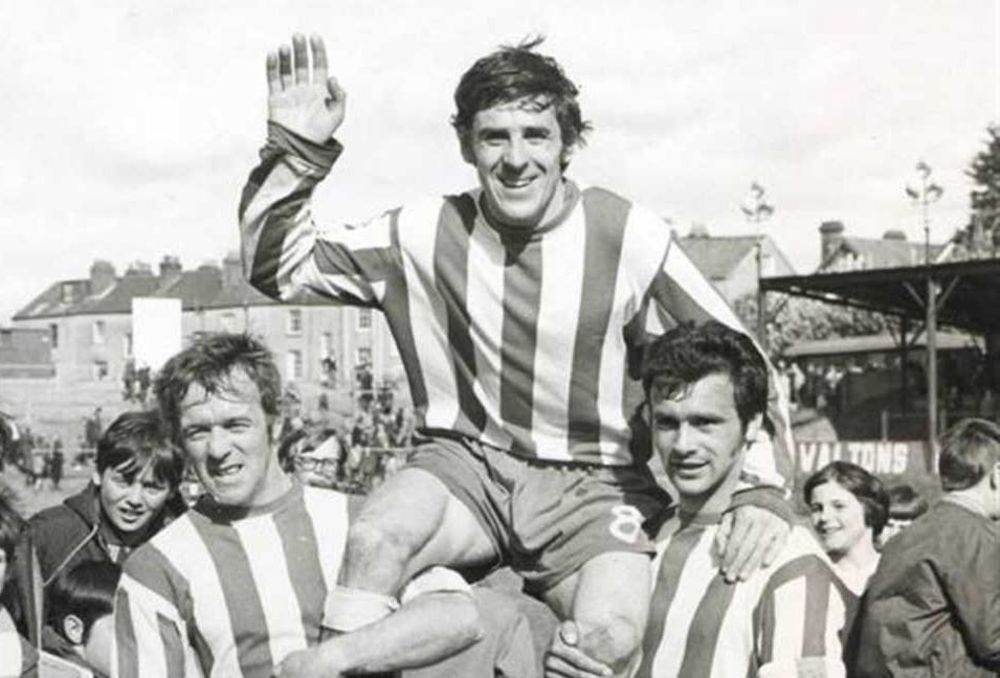
Dermot Curtis
As far as former internationals to wear the Robins red, centre-forward Dermot Curtis won 17 full caps for the Republic of Ireland and also represented the League of Ireland twice.
Curtis was playing in the League of Ireland for Shelbourne when he made his full international debut - and scored for the Republic of Ireland at home to Denmark in October 1956.
In December that year he joined Bristol City where he was to score 16 goals in only 26 games.
In September 1958 he joined Ipswich Town, playing in the side that won promotion Division One in 1961, and the championship the following season under Alf Ramsey.
In August 1963 he moved to Exeter City for £1,000, and a month later, became the first Exeter player to win a full cap for his country as he earned his 17th and final international cap in a 0-0 draw with Austria in Vienna.
Curtis was a member of the first ever Exeter side to win promotion in 1964 but a year later, asked for a transfer and the following January a delegation from Dundalk arrived in Exeter to offer him a move there for a fee of £800, but Curtis turned the move down.
After 91 appearances and 23 goals of the Grecians, Curtis moved to Torquay United, signing in August 1966.
However, his move to Plainmoor was not a great success as in his only season he made just 12 appearances, scoring a single goal.
In June 1967 he returned to Exeter, where his League career was to end after a further 66 appearances in which he scored 10 goals.
He later played Western League football for Bideford, signing for them in July 1969, and captaining the side that won the title in 1970/71.
He later had a spell as player-manager of Elmore and passed away in November 2008, aged 76.
Capped 58 times by Wales at full international level and 5 times as an under-23, defender Leighton Phillips began his career at Cardiff City, making his way through the youth and reserve sides, signing professional in April 1967, and making his League debut as a substitute against Rotherham United in January 1968, scoring with his very first touch.
In these early stages of his career, Phillips was used in positions all over the pitch, including playing as a striker and midfielder, before settling in defence as a sweeper.
He left the club in September 1974 after helping Cardiff win the Welsh Cup on three occasions to join Aston Villa for a fee of £100,000.
Winning the League Cup in 1977, Phillips also went on to captain the side on his way to making 175 appearances for the club before becoming Swansea City’s then-record signing when he joined for £70,000 in November 1978.
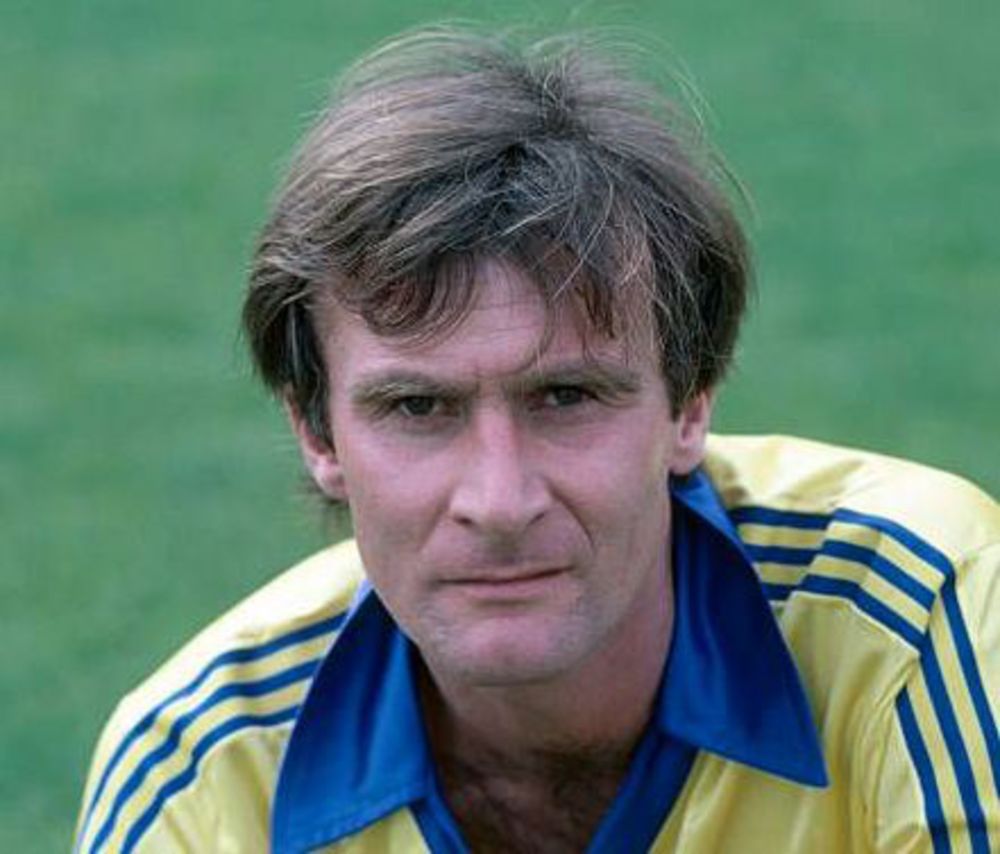
Leighton Phillips
After winning promotion to Division One in 1978/79 under John Toshack, Phillips moved to Charlton Athletic in August 1981 for £25,000, where he made 97 appearances, before finishing his professional career with Exeter City, signing for the Grecians in March 1983.
He made his debut for Exeter in a 3-2 defeat at Walsall in April 1983 and played in the last 10 matches of the season.
After leaving the Grecians, Phillips had a short spell with Bideford before returning to the Principality to join League of Wales outfit Llanelli as their player-manager in the summer of 1993 whilst working as an independent financial advisor.

Most clubs are looking for volunteers. Find out more on the button below:
www.PitchingInVolunteers.co.ukAll the news and results in one place.
REGISTER